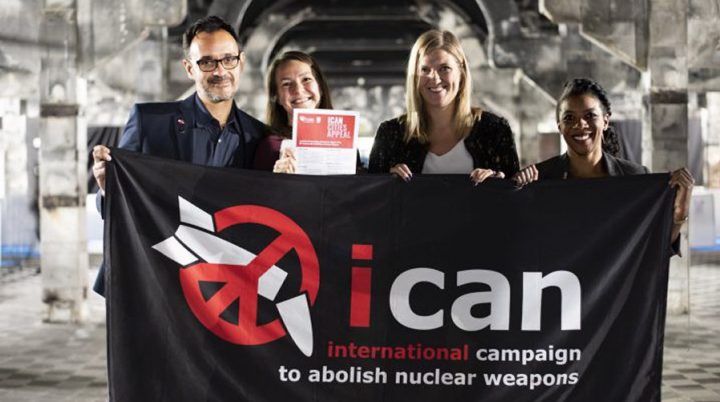NATO member countries have no legal impediment to signing the TPNW. Signing it or not is purely a political matter. If Spain signs it, it would be a revolutionary step that would contribute enormously to reducing nuclear hegemony.
By Carlos Umaña.
On the 7th of July last year, at the United Nations in New York, 122 countries voted in favour of the Treaty on the Prohibition of Nuclear Weapons (TPNW), the largest and most significant step on the road to nuclear disarmament so far.
The Treaty was opened for signature and ratification on the 20th of September last year and to date 69 countries have signed it, of which 19 have ratified it to become States Parties.
Opponents of the TPNW say it will not work because it does not have the support of nuclear-weapon countries, ignoring the fact that no treaty has enjoyed universal support from the outset. This is always built over time. Monumental advances in human history never begin with a common agreement between all parties.
Prohibition works. With other weapons of mass destruction, prohibition preceded elimination and was initially strongly opposed by possessors and producers. However, by putting the consequences before strategic considerations – a process known as humanitarian disarmament – it was possible to stigmatize them, prohibit them and eliminate them. Prohibition became the norm throughout the world, having an impact also on countries that did not support it. The most recent case is that of the United States, which has never signed the Convention on Cluster Munitions but ended up closing its last cluster munitions factory two years ago because it lost buyers, it lost investors and an international climate of moral condemnation of these weapons had been created.
In the same way, today, no country boasts of being armed with chemical or biological weapons. Strong international standards against such weapons have made this taboo. That’s what stigmatization is all about and that’s how this treaty works: weakening nuclear hegemony by influencing the moral, political, legal and economic mechanisms that have sustained it so far.
In the framework of the 2nd Forum on Urban Violence and Education for Coexistence and Peace in Madrid in November, ICAN launched their “ICAN Cities Appeal” which is a commitment cities make to the treaty and a call for their government to join the TPNW. This is a campaign that brings together the efforts of other campaigns around the world that have already spoken out in favour of the TPNW.
A month ago, India announced that it had developed the capability to fire nuclear missiles from submarines that can travel at any cost and aim their missiles at any city. Cities, urban centres full of civilian population, are the target of nuclear weapons. Cities are, at the same time, the axis on which the necessary paradigm shift can take place.
Cities can develop educational programmes that raise awareness of the humanitarian consequences of nuclear weapons. They can – and have an obligation to – invest public funds responsibly and implement divestment from nuclear weapons. They can also call on their government to sign and ratify the TPNW. This is especially relevant in politically decentralised countries such as Spain.
On the 2nd of September this year, the President of Spain, Pedro Sánchez, committed to sign the TPNW. NATO member countries have no legal impediment to sign it. Signing it or not is purely a political matter. If Spain signs it, it would be a revolutionary step that would contribute enormously to reducing nuclear hegemony.
The political support of city councils and municipalities is necessary to ensure that the current Spanish government takes the right decision. So that Pedro Sánchez fulfils his promise to sign the TPNW and propels this process forward.
In Spain, the Council of Santiago de Compostela has already expressed its support for the treaty. The Council of Granollers has done likewise. Cities such as Madrid and Barcelona are about to join the campaign strongly and we have the support of the cities network of Mayors for Peace, which is focused on this campaign.
It is time to mobilise Spain, which is approaching a historic step with global implications. Nuclear disarmament is closer than ever.






